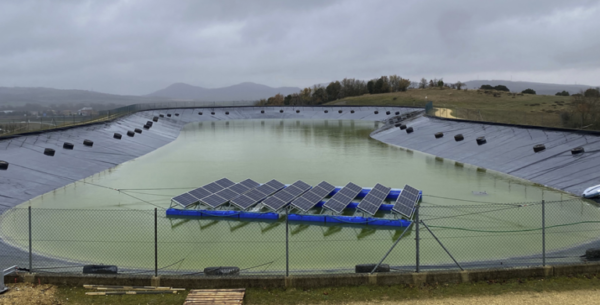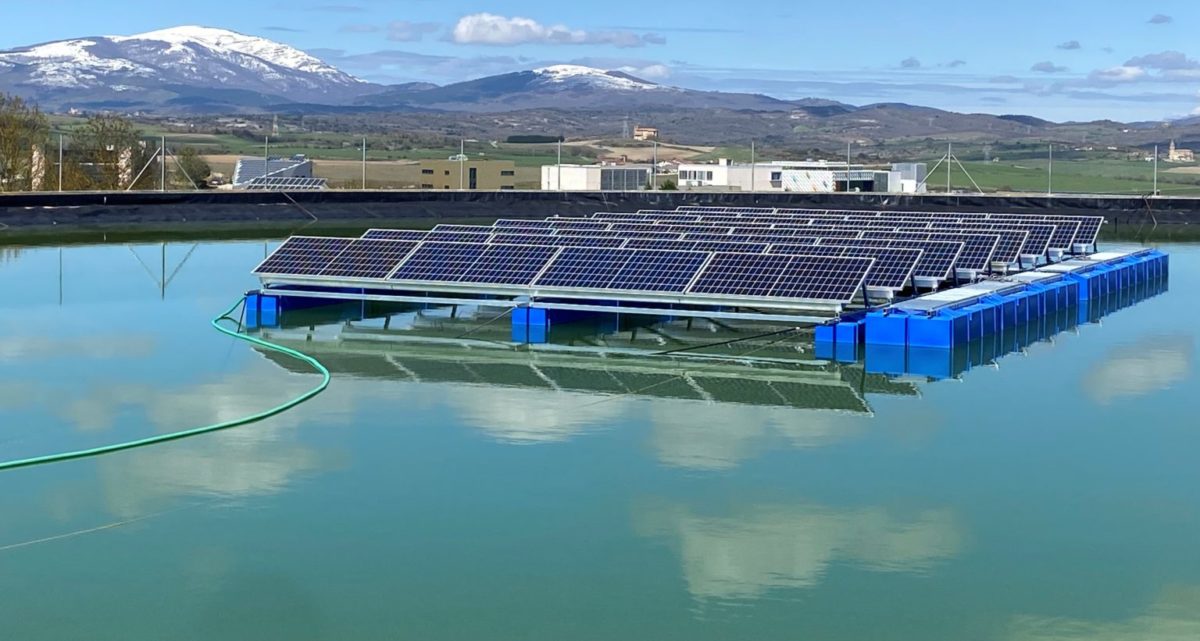From pv magazine Spain
Spain's Emica Bombas S.A., a provider of centrifugal pumps, ventilation, and machinery, has unveiled a new design for floating PV system that reproduces the structure of a trimaran, a kind of boat built on a main hull with two smaller outrigger hulls attached with lateral beams.
The system is the first prototype from the company's new Emica Solar subsidiary.
According to the manufacturer, the proposed system architecture offers more stability compared to conventional floating structures and reduces by up to 93% the contact area of the system with the water.
The first system prototype was recently developed on a water reservoir in Alava, in the northeastern territory of the Basque Country. The company claims it allows the deployment of the modules with a tilt angle of up to 25 degrees, stating that conventional floating structures commonly allow tilt angles of up to 10 degrees. According to Emica Bombas, this enables developers to make the use of bifacial panels more convenient.

When water basins must be emptied to clean the bottoms, the floating structure allows this task to be tackled without the need to dismantle the installation. “The set is designed by naval engineers,” the company said, adding that it can withstand winds of 29 m/s and waves of 1 m in height.
The pilot floating array was built with 32 solar panels with an installed capacity of 11 kW.
“Emica Solar was created by combining, on the one hand, the solidity of the Emica brand, its commercial network and its financial capacity; and on the other, a patented floating product known as EMS,” the company stated.
This content is protected by copyright and may not be reused. If you want to cooperate with us and would like to reuse some of our content, please contact: editors@pv-magazine.com.



4 comments
By submitting this form you agree to pv magazine using your data for the purposes of publishing your comment.
Your personal data will only be disclosed or otherwise transmitted to third parties for the purposes of spam filtering or if this is necessary for technical maintenance of the website. Any other transfer to third parties will not take place unless this is justified on the basis of applicable data protection regulations or if pv magazine is legally obliged to do so.
You may revoke this consent at any time with effect for the future, in which case your personal data will be deleted immediately. Otherwise, your data will be deleted if pv magazine has processed your request or the purpose of data storage is fulfilled.
Further information on data privacy can be found in our Data Protection Policy.